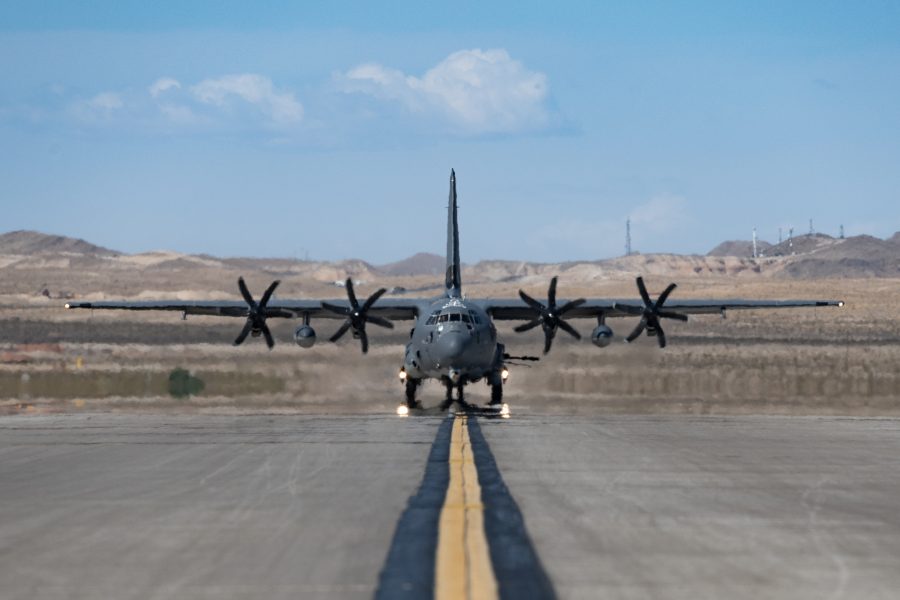A U.S. Air Force AC-130 gunship struck members of an Iranian-backed militia who had launched a missile attack on U.S. forces in Iraq on Nov. 21, resulting in enemy casualties, according to U.S. Central Command and the Pentagon.
The strike occurred after the Iranian-backed militias launched “a close-range ballistic missile against U.S. and coalition forces at Al Asad Air Base in Iraq which resulted in several nonserious injuries and some minor damage to infrastructure,” deputy Pentagon press secretary Sabrina Singh told reporters in a briefing.
After the missile strike, the AC-130 “maintained visual confirmation of the individuals from the time of the launch to the time of engagement,” CENTCOM added in a statement.
CENTCOM’s statement referred to “several enemy casualties,” while Singh said there were “some hostile fatalities.” Middle East analyst Phillip Smyth noted on social media that the militia is reporting one death from the strike.
Unlike three previous airstrikes conducted by the U.S. against Iranian-backed militias in the region in the last month, this latest incident was not “pre-planned,” Singh noted. The AC-130 was overhead at the time of the missile attack and was able to respond “because they saw the militants, they were able to keep an eye on the movement of these militants as they moved into their vehicle,” she said.
All the previous airstrikes were against militia facilities located in Syria, conducted by either F-15s or F-16s. The Pentagon has not disclosed whether they resulted in any enemy casualties.
Since Oct. 17, U.S. forces have been attacked by Iranian-backed militias approximately 66 times—32 times in Iraq, 34 times in Syria. The attacks come amid a wave of unrest in the region spurred by Hamas’ Oct. 7 attack on Israel and the Israeli air and ground response in Gaza. Singh noted that there have been 62 injuries reported by U.S. troops, though that total did not include any from the latest Nov. 21 attack.
The Pentagon has deployed a Terminal High Altitude Area Defense (THAAD) anti-missile battery to Saudi Arabia and Patriot surface-to-air missile systems to a number of Gulf states and Jordan. Short-range Avenger systems are also being deployed to protect troops.
U.S. troops are in Iraq and Syria to advise and mentor local partners who are working to prevent a resurgence of the Islamic State group. Some 2,500 U.S. troops are in Iraq working with Iraqi forces, while 900 troops are in Syria.
